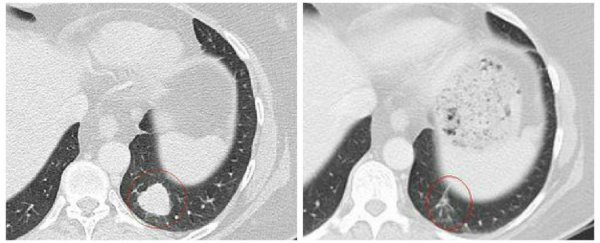A combination of the cancer drugs ipilimumab and nivolumab can stop the growth of tumours by at least a third, a new study has shown. Working with 945 advanced melanoma patients from 137 facilities around the world, an international team of scientists found that in 58 percent of the cases, their tumours shrunk within 11.5 months of treatment.
The drugs work by manipulating the body's own immune system and making it do something it doesn't normally do - attack its own tissues. But in this case, the trick is to get the immune system to distinguish between the cancerous tissues and the healthy ones. When compared to treatments using just one of these drugs, the combination delayed the progression of the tumours by almost four times, which suggests a doubling, or maybe even quadrupling of lifespan for advanced melanoma patients.
"By giving these drugs together, you are effectively taking two brakes off the immune system rather than one, so the immune system is able to recognise tumours it wasn't previously recognising and react to that and destroy them," one of the team James Larkin, from the Royal Marsden Hospital in the UK, told James Gallagher at BBC News. "For immunotherapies, we've never seen tumour shrinkage rates over 50 percent, so that's very significant to see."
According to Gallagher, the patients receive Ipilimumab intravenously once every three months, at a cost of around £100,000 (AUD$196,982) every year. Nivolumab is added to the treatment once every two weeks. The manufactiurer of the drugs, Bristol-Myers Squibb, funded the study.
The results of the trial, which were presented at the 2015 meeting of the American Society of Clinical Oncology in Chicago last week and published in the New England Journal of Medicine, might sound awesome, but the problem with these kinds of short-term studies is that it's unclear exactly how long the effects of the treatment will last, and what the extent of the side-effects will be.
Fatigue, rashes and diarrhoea have been common, but it's not known why some people experience them, and why some people respond better to the treatment than others. So far, the side effects have been more severe than those experienced by patients taking just one of the drugs, which means the treatment might not be suited to the very sick and frail, and the patients who experienced tumour shrinkage have shown no signs of regrowth for 12 months.
The study joins another from last week that showed positive results in treating aggressive skin cancers using new treatment methods. A separate trial involving 400 cancer patients in the UK saw one in four reach remission at least six months after being treated with a modified version of the herpes virus. Hopefully this means we're narrowing in on this devastating disease once and for all.
